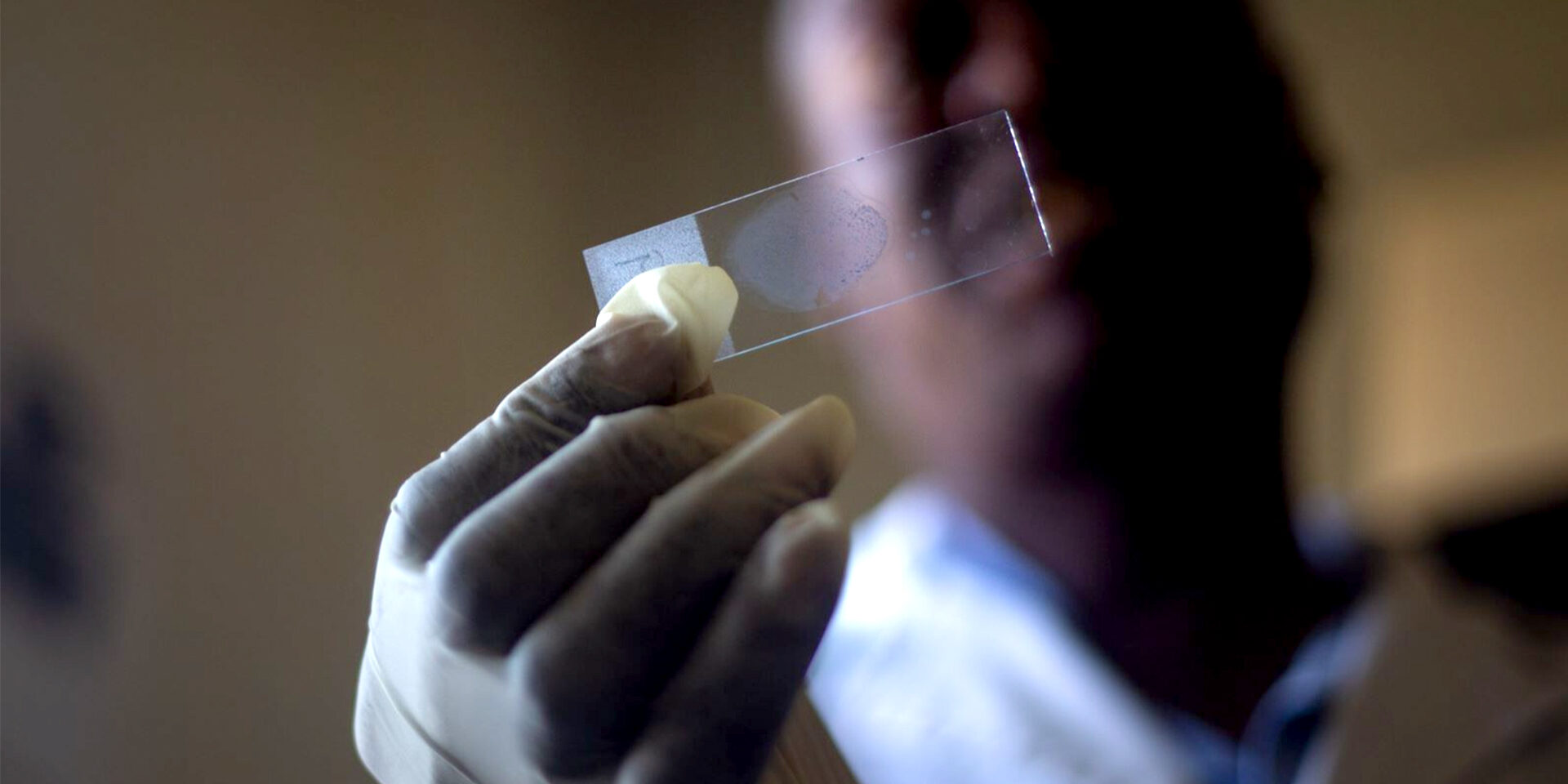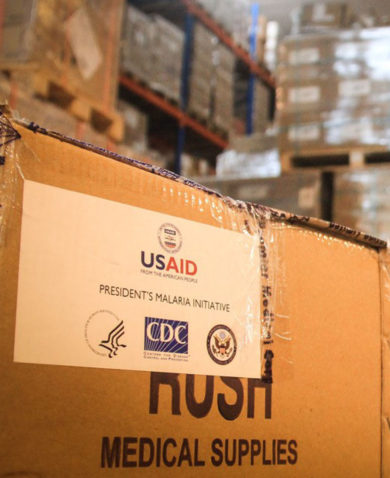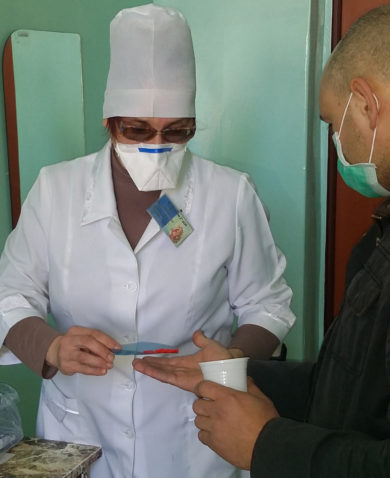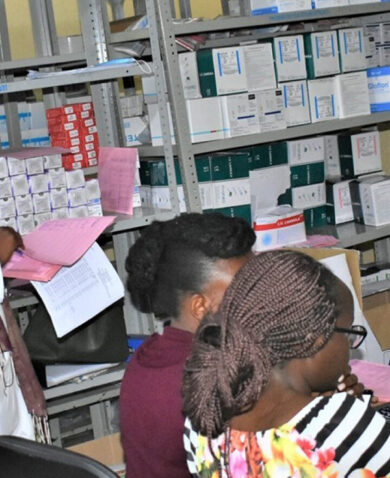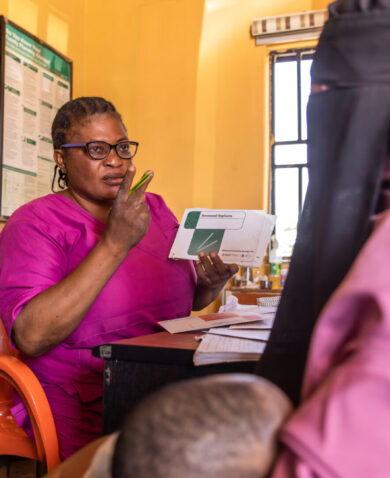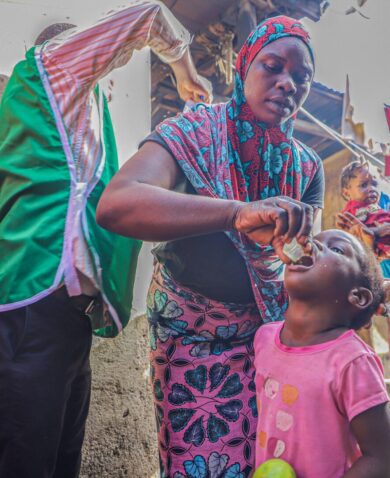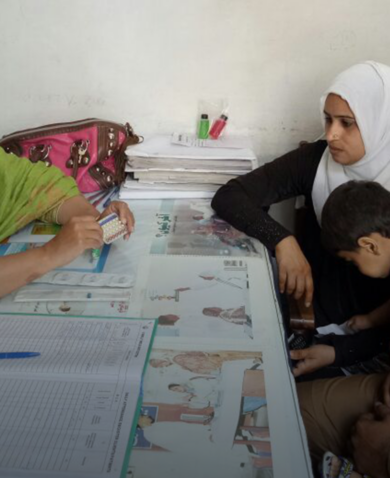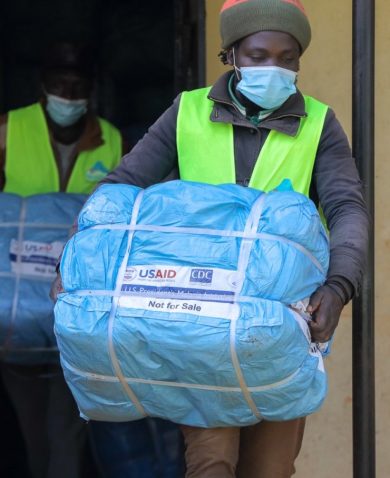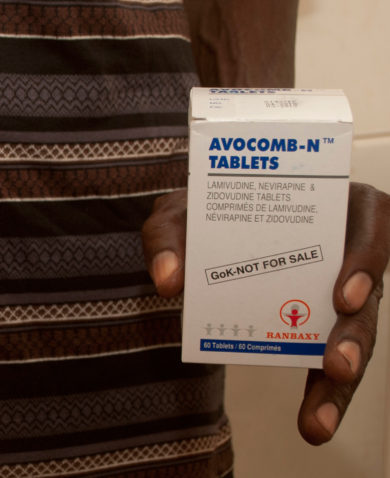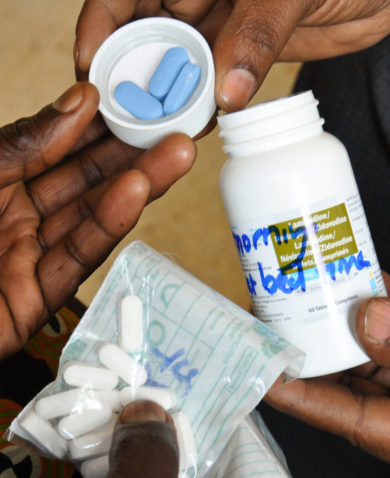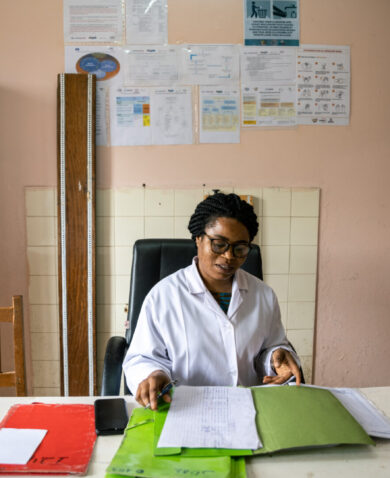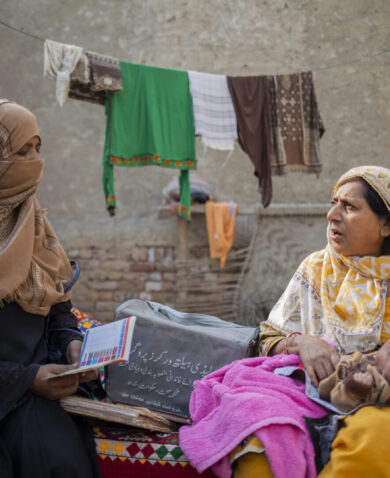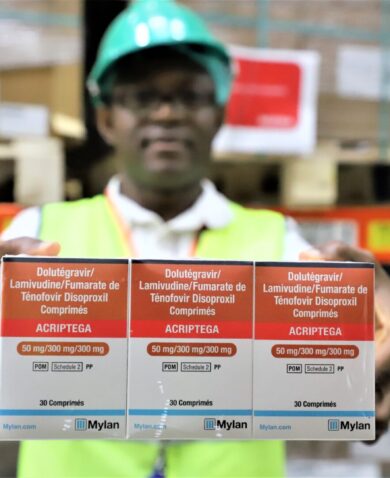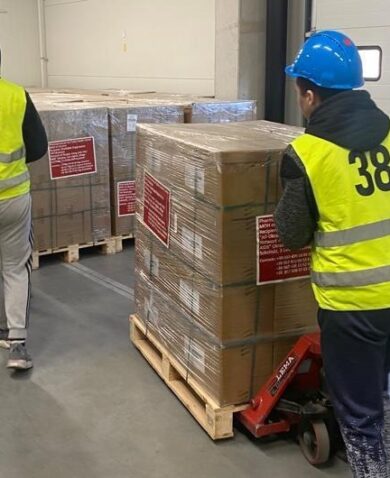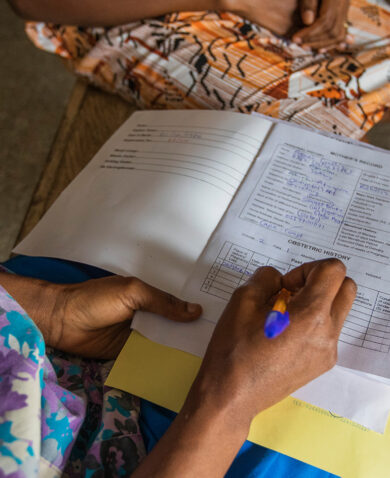The SHARP Task Order 3 team supports thousands of clients like Ms. Fatou, helping them enroll in HIV treatment and adhere to medications until they reach durable viral suppression, which is achieved when the client reaches a particular viral load count. The team has combined different client-centered strategies, such as forming treatment adherence clubs and improving provider-patient relationships, to help retain ART patients, particularly during the COVID-19 pandemic and the violent insurgency. The team travels to hard-to-reach areas, such as Zabarmari, to expand access to antiretroviral drugs and ensure that clients residing in these remote locations receive follow-up care. The team has also established nine refill centers across local government areas in Nigeria to make refills more accessible to virally-suppressed clients.
The program’s case management and client tracking activities include counseling to educate clients on the benefits of remaining in care and adhering to treatment. The team has integrated adherence messages to support groups and targeted adolescents and youths through Operation Triple Zero, a platform for adherence education and peer-to-peer support and mentorship. It has also strengthened collaboration with civil society organizations and the Network of People Living with HIV/AIDs in Nigeria. These and other strategies — including multi-month dispensing, home delivery of antiretroviral drugs, intensive case management, and other client-centric approaches to provision of care — allowed SHARP Task Order 3 to ensure that every single patient receiving ART in Borno continued to receive treatment. Despite the insurgency, client retention in care remains the cornerstone and hallmark of service delivery in Borno and accelerates progress on HIV epidemic control. For patients such as Ms. Fatou, each milestone toward epidemic control is life-changing and restores optimism for the future. She is full of smiles now; her hope is restored, and she will live a healthy life.
Note: Ms. Fatou is an alias to protect the identity of the patient in this story.

